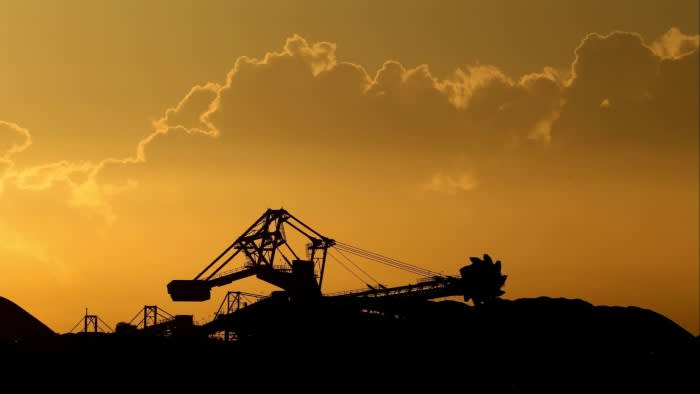Unlock the Editor’s Digest for free
Roula Khalaf, Editor of the FT, selects her favourite stories in this weekly newsletter.
Glencore seems determined to expand the business lexicon. What is a U-turn on a U-turn? A somersault? A circle? Or just a sign that a company will pivot from its supposed ideals when it suits the moment?
The miner is keeping its coal business just eight months after chief executive Gary Nagle made the case for demerging it. In November, Glencore had indicated that the completion of its $6.9bn deal for the majority of Teck Resource’s coking coal business would start a two-year clock on a spin-off of the combined coal assets.
Nevermind investor queasiness about highly polluting thermal coal. US investors had a “very, very strong” appetite for a separate coal business, Nagle argued. The remaining Glencore metals business would then enjoy a value uplift, he suggested.
This was a surprising shift. Glencore had spent many years arguing for “responsible stewardship” by global mining companies of coal assets — in other words, running them down in line with the energy transition.
Why another change of heart? Glencore pointed to “extensive” engagement with shareholders, the largest of which include former boss Ivan Glasenberg. They had concluded that any value created by a demerger would not justify the large costs involved.
Another factor mentioned was a shift in attitude on environmental issues and shareholders’ preference to have the spoils from highly polluting but profitable fossil fuel assets simply returned to them.
Increased distributions look a near certainty: Glencore’s net debt after cash commitments has to move below $10bn for it to return excess cash to shareholders. It only has to de-lever by $300mn to hit this. By year end, adjusted net debt is expected to fall to $6bn-$7bn, reckons Deutsche Bank’s Liam Fitzpatrick.
True, the idea that a demerger would neatly create value was never clear cut. Teck Resources’ shares have flown since agreeing to sell its coal assets in November. Large, diversified mining groups trade at a significant discount to copper specialist Freeport-McMoRan. On the other hand, shares in Anglo American and Rio Tinto have hardly outperformed Glencore since demerging or exiting their own coal assets.
But Glencore’s approach to coal just reflects its boundless opportunism. A coal spin-off was a way to get Canada’s Teck Resources to engage. The Canadian group, which wanted to separate its coal and metals businesses, had rebuffed Glencore’s initial attempt to buy it in its entirety before agreeing to sell its steelmaking coal unit.
Glencore says it “preserves the option” to consider a demerger of all or part of the coal unit in future. Of course! As mining M&A picks up, there could be other deals to do and boardrooms around the sector remain wary of coal. This “will it, or won’t it” tale does not end here.
nathalie.thomas@ft.com


